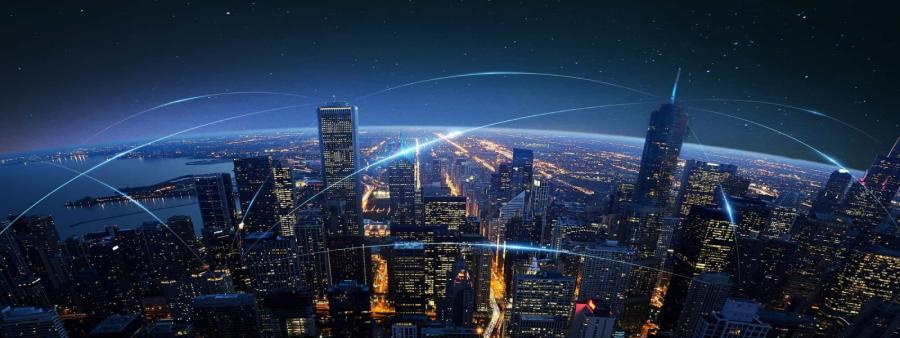Smart cities - What are sustainable cities?

More than 50% of the population has been moving to the urban core since 2007, and according to the UN 60% will be living in cities by 2030. The pace at which urbanization is advancing and people are moving to the metropolitan area requires a new conception of what we have known until now as cities.
How will they evolve in the face of this new perspective?
Smart cities - What are they?
A sustainable city is one that is designed and managed efficiently, so that it is able to meet the needs of present generations without compromising the capacity of future generations.
This implies considering a number of factors, such as the management of natural resources and environmental protection, the promotion of a sustainable economy and the promotion of an adequate quality of life for all citizens.
In short, the smart city concept seeks to balance economic development, social welfare and environmental protection.
Why are sustainable cities necessary?
There are several reasons why sustainable cities are indispensable today. First, the world is facing a few environmental challenges such as climate change and natural resource degradation. This tells us that if cities do not adopt a sustainable approach, the problems could worsen and have a negative impact on people's quality of life.
On the other hand, a smart city acts as a driver of economic and social development. Promoting innovation and job creation in green and sustainable areas. In addition, smart cities are more resilient to natural disasters and other challenges, contributing to the safety and stability of the community.
In short, a sustainable city is essential to ensure the well-being of people and the planet in the future.
What makes a city a smart city
How do we define the characteristics of a smart city? As we have already mentioned, a sustainable city is one that uses advanced technologies to improve the efficiency and quality of life of its citizens.
This can include the use of sensors and internet-connected devices, as well as applications and information systems to collect and analyze data in real time. With this information, cities can make more informed decisions and respond quickly to citizens' needs.
They are also able to use technology to optimize the use of resources, such as water and energy, and thus improve mobility and traffic management.
Technology is a key component in the creation of a smart city and plays an important role in its development.
Smart city model
There is no single smart city model that applies to every city in the world. Instead, each city can develop its own approach based on its needs and resources. However, there are some common elements that tend to be part of most smart city models. These elements are some such as:
-
The use of advanced technologies
-
Collaboration between different sectors
-
The active participation of the community (in its design and management).
In addition, the sustainable approach is usually a key component in most smart city models, as it is a way to ensure that the city can meet the needs of present generations without involving future generations.
The ideal smart city model can be based on several subsystems, such as transportation, energy, water management, health, education and security. Each of these subsystems can collect and analyze data in real time.
On the other hand, collaboration between different sectors and active community participation in the design and management of the city are key elements to ensure that the smart city model is sustainable and beneficial to all citizens.
Benefits and advantages
Sustainable cities are those that take into account the environment, the economy and the quality of life of their inhabitants when planning and developing their growth and development. Some of the benefits and advantages of sustainable cities include:
-
Reduced air and water pollution: sustainable cities use clean technologies and encourage the use of non-polluting modes of transportation, which reduces air and water pollution.
-
Increased energy efficiency: sustainable cities encourage the use of renewable energy and promote energy efficiency in buildings and transportation, which reduces energy consumption and energy costs for residents.
-
Increased access to green spaces and outdoor activities: sustainable cities have more parks, gardens and green spaces, which promotes physical activity and improves the health and well-being of their inhabitants.
-
Greater inclusion and equity: sustainable cities consider all their inhabitants and promote inclusion and equity in decision-making and resource allocation.
-
Increased resilience and adaptability to climate change: sustainable cities are better able to withstand and adapt to extreme weather events and long-term climate change.
-
Increased tourism and economic attractiveness: sustainable cities can attract tourists and businesses that value the environment and sustainability, which can boost economic growth and employment.
Related studies
The need for professionals capable of developing and managing smart cities is growing every day. Understanding the complexity of processes and redefining the role of a city is the main objective of a sustainable or smart city.
At La Salle-URL we train professionals with value. That is why our formation in smart grids provides students with a deep understanding of how smart cities work and how they can be used to improve life in cities.
In addition, students can also learn about the design and implementation of information and communication technology (ICT) systems in cities, and how to use data and analytics to make informed decisions and solve urban problems.
Add new comment